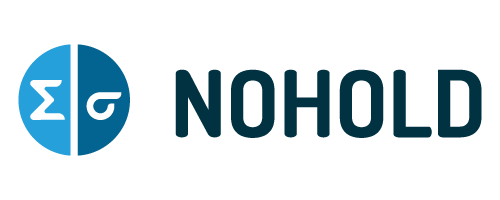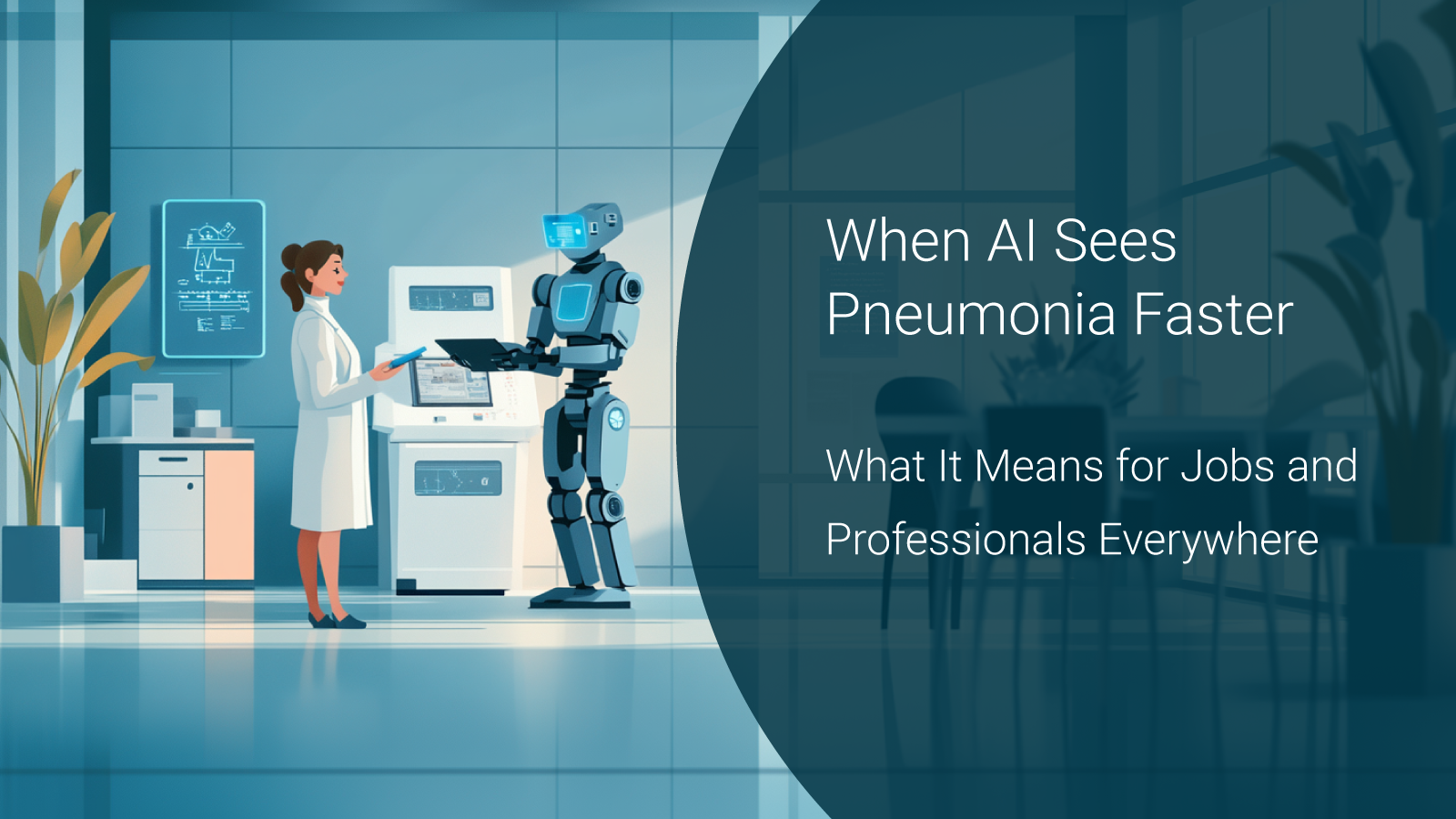A recent story made waves when a doctor, who has 20 years of experience perfecting his skill at reading chest X-rays to detect pneumonia, shared his reaction to AI technology that can analyze the same images in seconds. With a mix of humor and concern, he joked he might need to start applying to work in fast food. His reaction demonstrates a fear many professionals share: Is AI going to take my job? (Source: The AI Page on Instagram via Dr. Mohammad Fawzi Katranji)
This concern isn’t limited to healthcare. Across all industries, AI’s rapid advancement has sparked a widespread conversation about the future of work. But rather than posing a threat, does AI offer an opportunity to enhance human skills, increase productivity, and refocus our efforts on the things that only people can do?
AI as a Tool to Amplify Human Expertise
Just like the AI that rapidly scans X-rays, AI excels at processing large amounts of data quickly and consistently. In many industries, AI can take on repetitive or data-heavy tasks that are resource intensive. But this doesn’t mean jobs disappear—rather, professionals gain powerful assistants that free them up to focus on strategy, creativity, and personal interaction.
For example:
- In finance, AI can analyze market trends and flag risks, allowing analysts to spend more time crafting strategy
- In marketing, AI can sift through customer data to identify patterns, empowering marketers to focus on storytelling and campaign innovation
- In law, AI can review documents quickly, so lawyers can dedicate more time to case strategy and client relationships
The core idea is the same across fields: AI handles the tedious work, while humans focus on judgment, creativity, and empathy.
More Time for What Matters Most
AI-driven efficiency creates room for professionals to prioritize the uniquely human parts of their work. Whether it’s a doctor comforting a patient, a teacher mentoring a student, or a manager inspiring a team, these roles thrive on emotional intelligence and nuanced understanding—things AI can’t replace.
By automating routine tasks, AI empowers people to:
- Make better-informed decisions
- Develop deeper connections with clients or colleagues
- Innovate new solutions and approaches
- Adapt quickly
Adapting to a New Professional Landscape
For many, the rise of AI means rethinking how we work and what skills we emphasize. It’s less about competing with machines and more about collaborating with them. Upskilling in areas like data literacy, critical thinking, and interpersonal communication will become increasingly valuable.
Instead of fearing displacement, professionals can see AI as a tool that amplifies their value—helping them do more, faster, and better.
Conclusion
The story of the doctor confronting AI in the medical field is just one example of a broader shift happening across industries. AI isn’t here to replace human workers; it’s here to support them—handling the repetitive, data-driven tasks so people can focus on creativity, judgment, and human connection.
Rather than worrying about AI taking jobs, let’s embrace how it can empower professionals everywhere to be more productive, effective, and fulfilled in their work.

